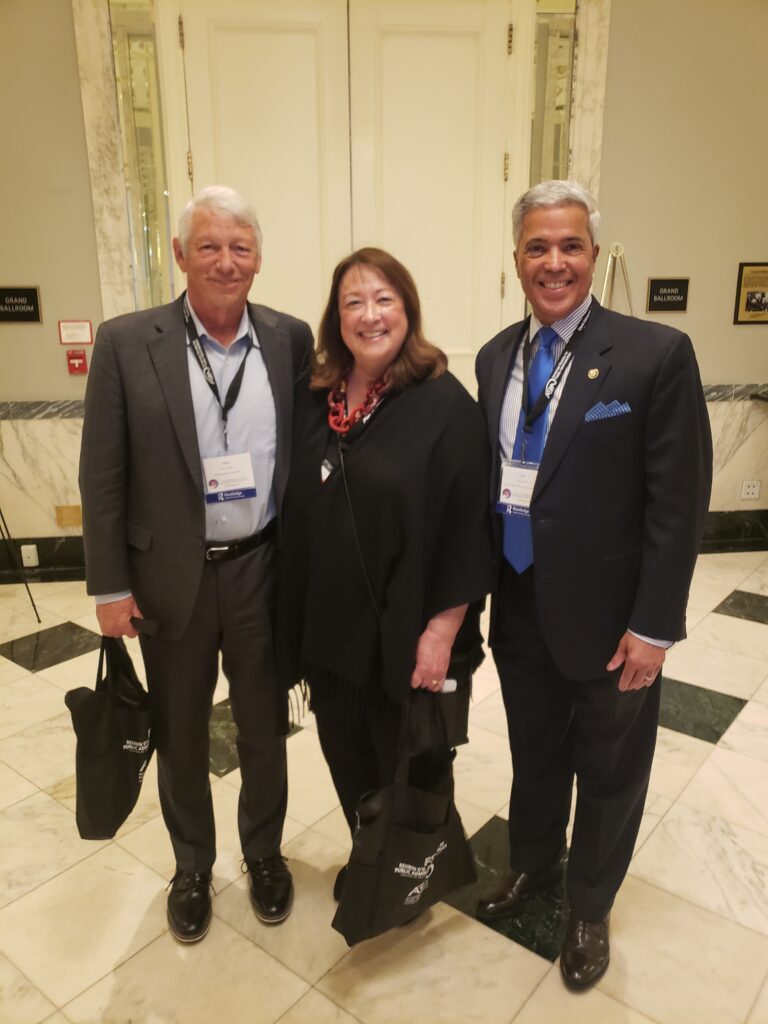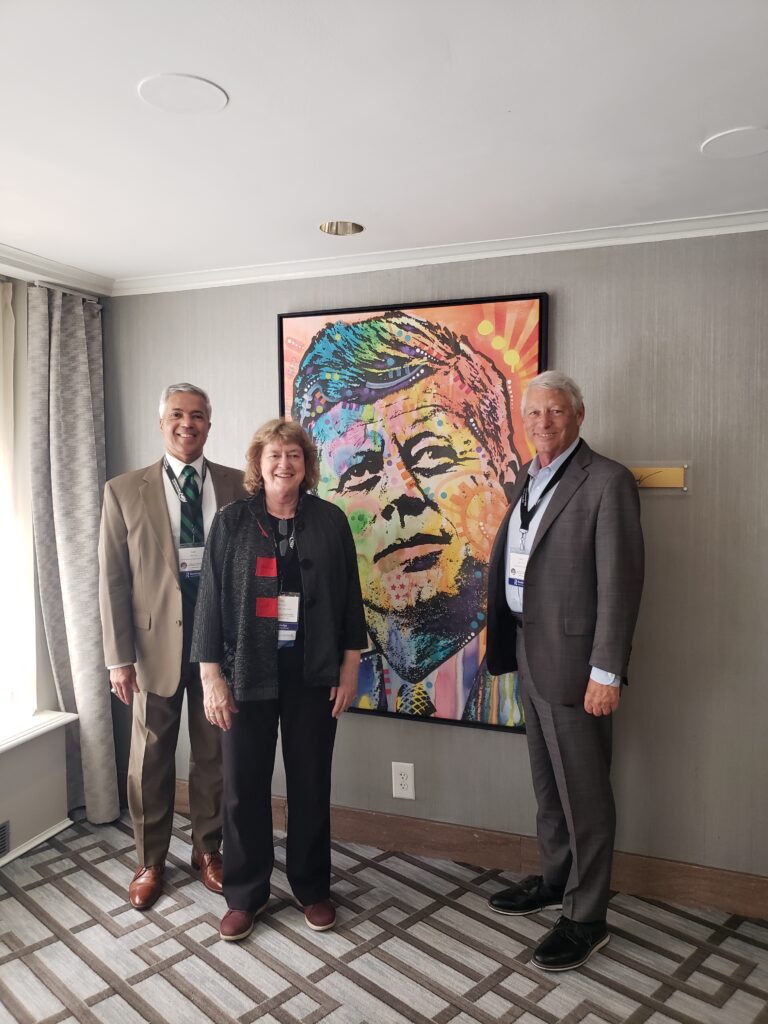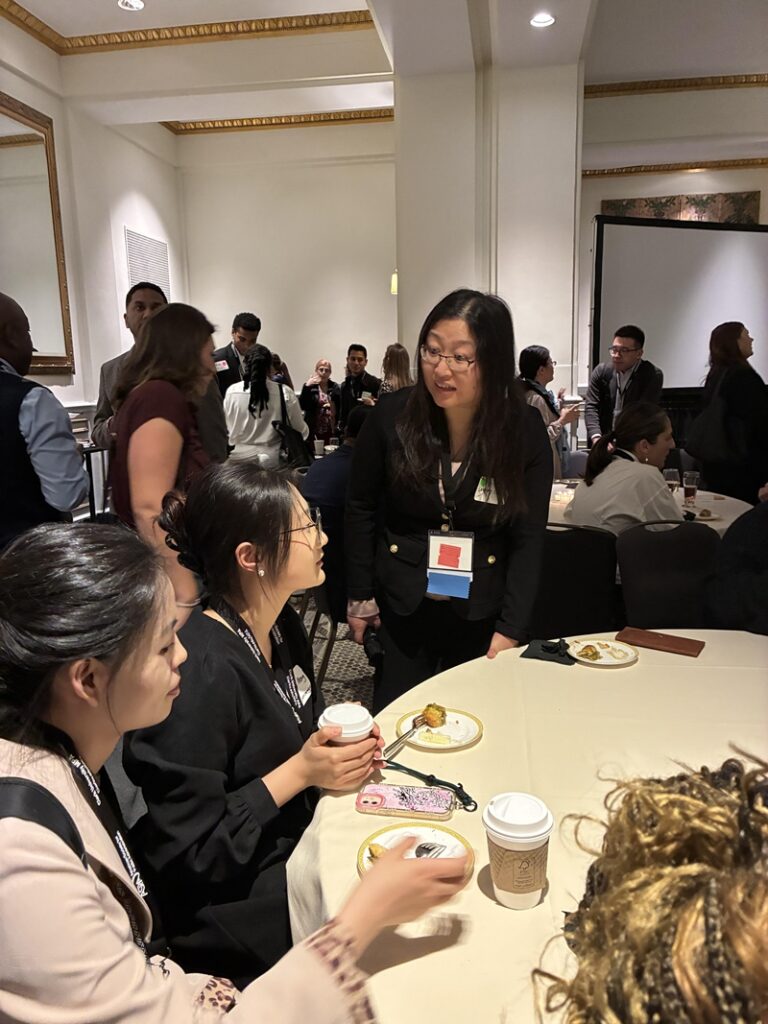New and Returning Board Members Bring Deep Public Service Experience and Fresh Energy
The chapter’s board includes a strong mix of nonprofit leadership, long-term federal service, local government expertise, higher education, and organizational development. Creating a well-rounded team focused on stability, growth, and member value in the year ahead.
Whitney Meyerhoeffer works in the nonprofit sector and is especially focused on helping the chapter strengthen sustainable governance. Her priority is building durable practices that support continuity and long-term effectiveness.
Connie Berhane brings three decades of federal government experience. She is committed to supporting membership growth and closely monitoring participation trends over the upcoming year to ensure the chapter remains strong in key membership areas.
Judy England-Joseph has served as a federal employee since 1975, retiring from U.S. Government Accountability Office and continuing her work today by helping organizations improve employee engagement. She is interested in supporting chapter programming and contributing her experience to strengthen member-facing activities.
Dale Jones, serves as the immediate past president and brings a diverse background spanning the United States Air Force, higher education, and executive coaching. His focus is on ensuring smooth leadership transitions, supporting the new president and board, and helping sustain ongoing work already in progress.
Keesha Gill works in human services with Fairfax County Government. She plans to provide operational support to the board, particularly through organizing administrative processes and maintaining board files to keep the chapter’s work efficient and well-documented.
Joshua Lanier has more than 15 years of federal government experience and currently works with the United States Secret Service in a congressional committee context. He supports the board’s essay contest and brings a creative side as someone who enjoys photography and beach travel.
Dennis McBride, teaches at Georgetown University and has a background in behavioral neuroscience and experimental psychology. He is interested in helping the board with strategy and long-range thinking.
Hao Sun has 8–9 years of federal government experience and teaches at American University. Encouraged to join the board, he is currently learning where he can add the most value and is approaching his role with openness and curiosity.
Katherine McKinney recently began a new role with Washington State Government, where she is establishing a project management office. She is eager to support programming and membership efforts, with a special focus on ensuring members feel welcomed, valued, and connected.
Ryan Heimer earned an MPA last year and works in the coalfields supporting the health and safety of coal miners. He is interested in contributing through chapter communications—especially by helping with the newsletter and assisting with written comments and advocacy-oriented writing when needed.
Allen Lomax has served on the NCAC Board since 2013, when he was appointed by ASPA National’s Board of Directors to help revitalize the chapter. His work with the City of Alexandria has helped inform chapter discussions on key issues such as affordable housing and the opioid crisis, while also bringing valuable intergovernmental perspectives to NCAC programming.
Together, this group blends experience and enthusiasm. Strengthening the chapter’s leadership capacity, supporting effective transitions, and expanding the board’s ability to deliver meaningful programs and a welcoming member experience.





